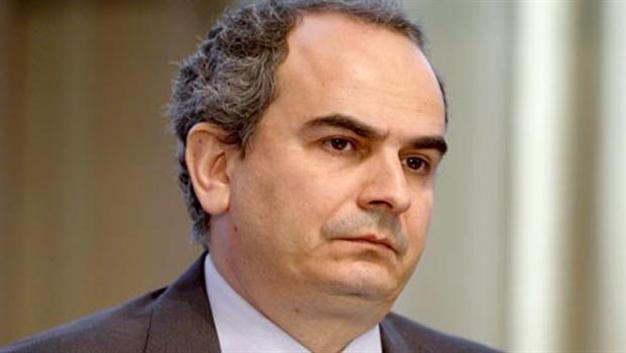Turkish Central Bank Governor dismisses resignation rumors
ISTANBUL - Reuters
 Turkish Central Bank Governor Erdem Başçı sought to calm jittery investors on Feb. 27, dismissing rumors that he would resign and giving a brief lift to the lira currency after it tumbled to a record low.
Turkish Central Bank Governor Erdem Başçı sought to calm jittery investors on Feb. 27, dismissing rumors that he would resign and giving a brief lift to the lira currency after it tumbled to a record low.Başçı's future, and the independence of the central bank, have been a concern for investors since President Tayyip Erdoğan stepped up criticism of the bank this week after it failed to meet his demand for bigger rate cuts.
Speaking at a lunch for provincial governors on Feb. 27, Erdoğan did not mention the bank's latest rate decision but repeated his view that high interest rates amounted to a betrayal of the nation.
"Selling out the country would be to waste its resources through mismanagement, high interest rates and high inflation," he said in a speech ostensibly about Syria and a Kurdish peace process, but in which he listed various forms of betrayal.
"Serving the country means lowering inflation and interest rates to allocate that resource to investments for the country and people," he said.
In a further sign of the pressure Başçı faces, Economy Minister Nihat Zeybekçi was quoted as saying that the bank's main interest rate should be cut to 6 percent from 7.5 percent as borrowing costs were "not tolerable."
Başçı, who was absent from work on Feb. 26, said that was due to a health check-up which not reveal any serious problems, and was not a sign of an imminent departure, as some market participants had feared.
"A public duty is performed for the period it is assigned and it is performed in the best way. As our health allows, we will continue to fulfil the requirements of this duty," he said in comments broadcast by CNN Türk.
That initially helped the lira recoup some losses. But the recovery was short-lived and the currency was at a new record low of 2.524 by 1218 GMT.
One eye on election
Erdoğan said on Feb. 25 that the bank's monetary policy was "unsuited to the realities of the Turkish economy" after it failed to meet his demands for rate cuts larger than those it made on Feb. 17. He questioned whether the bank was under external influence.
The main share index fell 1.6 percent on Feb. 27, while the yield on the benchmark 10-year government bond rose to 8.56 percent from a spot close of 8.21 percent on Feb. 26.
For all the turmoil in financial markets, Erdoğan's tirades have won praise from a class of industrialists who have thrived on cheap borrowing costs and political stability over the past decade, and who see him as a pillar of their success.
With his eye on a June general election, Erdoğan's rhetoric on monetary policy is unlikely to be toned down any time soon.
Traders viewed Erdoğan's questioning of whether the bank was under external influence as a thinly veiled reference to U.S.-based cleric Fethullah Gülen, a former ally whom Erdoğan accuses of infiltrating state institutions in a bid to unseat him. In the past year, Gülen followers have been systematically
purged from bodies including the police and judiciary.
Erdoğan's criticism has also triggered speculation about the future of respected Deputy Prime Minister Ali Babacan, an anchor of investor confidence in Turkey for more than a decade.
Babacan, who is in charge of the economy and has been a staunch defender of central bank independence, met Prime Minister Ahmet Davutoğlu for more than two hours following Erdoğan's comments on Feb. 25, rattling financial markets.
The deputy prime minister has kept a low profile since then.
















